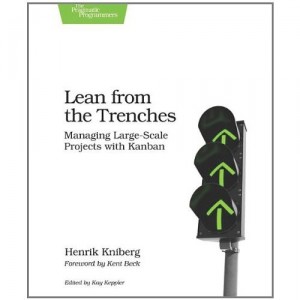 Crunch times are a sign of failure of project management, not a way of catching up.
Crunch times are a sign of failure of project management, not a way of catching up.
I was bleary-eyed as I finished the last of the typing. I did a quick spell-check, and pressed print, trusting that the chugging of the printer working away would be enough to keep me focused as I prepared the binders and envelope.
I needed the printer to keep me focused as I was tired. Very tired. I’d worked until 5 in the morning, then got up and got back to work by 8:30. This was a tough crunch, a period of intense work to get something finished by the deadline.
I was doing this because I’d made a mistake. I’d misread the date this tender response had to be returned by, and thought I had two more days than I actually did. When I finally noticed my error, the only way I could make sure I was finished in time was to work very, very late.
Doing this made me think about the other crunch times I’d been involved in on other projects. I remembered the late nights working in an empty office building, because as the project officer the work of sorting, filing, and burning project documentation onto CDs had been left to me – but no-one had thought to finish all the documentation they were writing until the day before everything had to be done.
I remembered the nights we worked into the early morning in the boardroom, two sets of negotiators thrashing out a contract, the arguments for and against various clauses getting less coherent as the night wore on.
I remembered my first time as a project manager, demanding that my supplier throw more resource to deliver a complex infrastructure for the date marked on my plan, not a week later.
All these memories, and my current predicament, had one thing in common. They all happened because of a mistake.
As a project officer, I had had to work late because the project manager hadn’t considered the preparation time to ensure we could present our documentation for our project assessment – yes, he’d made sure there was time for the documents to be written, but there was a need for additional effort to deliver them properly.
Working in the boardroom into the early morning happened because we hadn’t included enough time for negotiations in our project plan. We were carrying out negotiations with four possible suppliers at the same time, and that meant to meet the timescales that had been set for us, we either shortchanged each supplier, or the project team had to work into the early hours day after day, week after week.
My demands to a supplier that they throw more resource, of people and money, at a delay to make sure we met the date on my plan was due to my earlier mistake of letting my executive, and the rest of the business, believe that a project plan could be written that predicted the definite end date of a project a year in advance. I was too inexperienced to realise I needed to go back and explain the changed end-date – after all, a week’s slippage on a year long project is not bad at all.
And that’s the thing with crunch times in projects – usually, they are caused by a mistake. Sometimes, like last week and my tender response, they are caused by a mistake that you can’t do anything to fix. Then you can’t get away from the crunch, but you can learn from it to make sure it doesn’t happen again.
Other times, like when I demanded the supplier put in more resource, the mistake can be fixed. In that case, it was a matter of realising much earlier that our plans and schedules need to be flexible, and adapt to changes on the ground. A plan can’t be a prediction of the future, it can only be a guide to our route – and one that we need to adapt as we go along.
Avoiding crunch times means you are less likely to burn-out yourself or your team, and that your work will be of a higher quality – if you’re working on something when you’re tired, you are more likely to make errors. Sometimes you’ll catch them, and end up doing even more work to fix them. Sometimes you won’t, and they’ll end up in a poor quality output.
So the next time you feel like you, or your team, have to start putting in more hours, coming in at weekends, or otherwise somehow putting in extra effort, ask yourself what the root cause of this is. Is it something you can’t avoid this time – but can learn from to avoid in future? Or is it a case of not realising the deadline can be moved to reflect reality?
(Image courtesy of timsackton. Some rights reserved.)
 Recently I’ve been exploring a few online tools to use to assist with project management. One of those I’ve found particularly useful is Trello.
Recently I’ve been exploring a few online tools to use to assist with project management. One of those I’ve found particularly useful is Trello.





